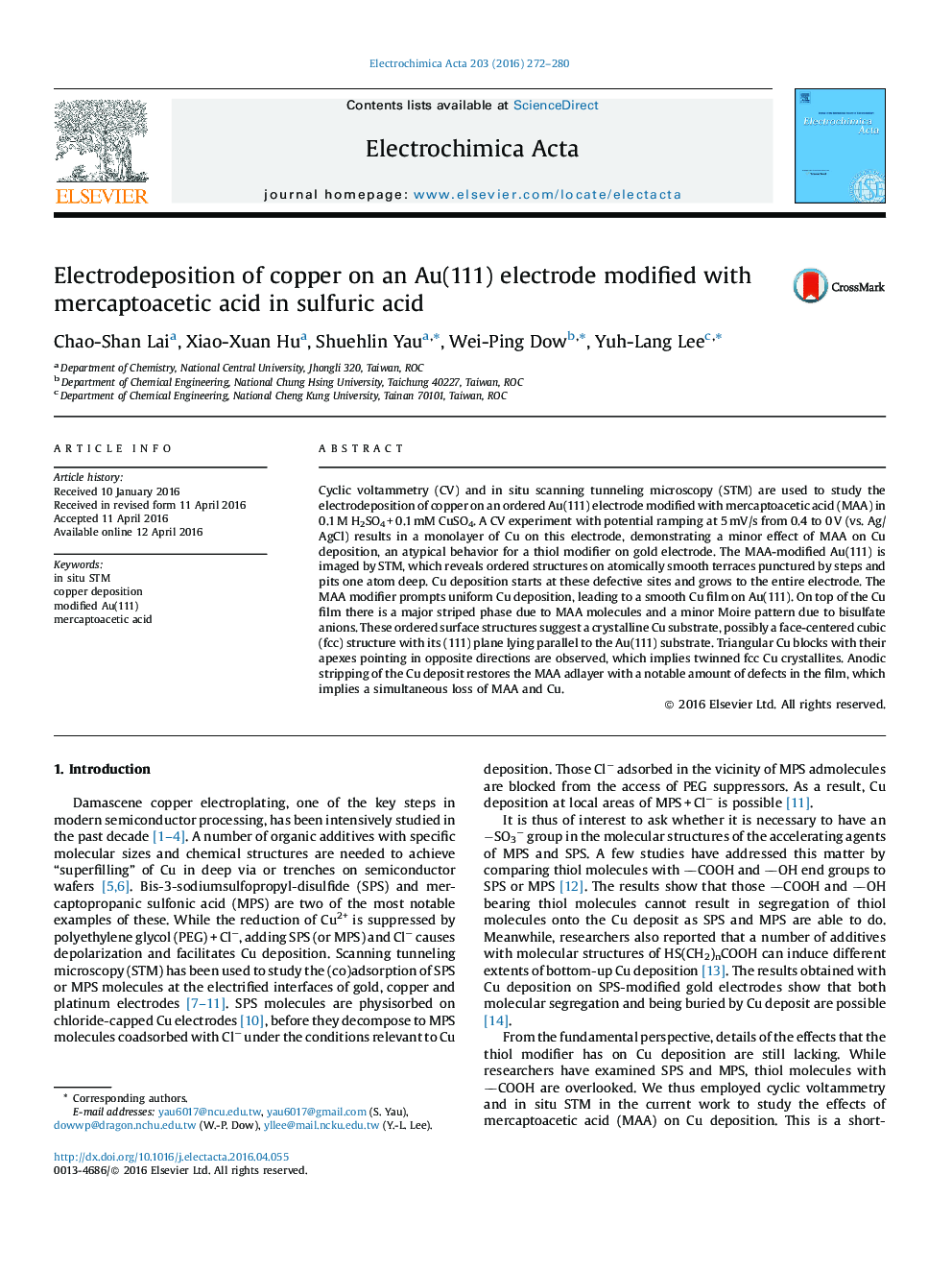| کد مقاله | کد نشریه | سال انتشار | مقاله انگلیسی | نسخه تمام متن |
|---|---|---|---|---|
| 182987 | 459529 | 2016 | 9 صفحه PDF | دانلود رایگان |

Cyclic voltammetry (CV) and in situ scanning tunneling microscopy (STM) are used to study the electrodeposition of copper on an ordered Au(111) electrode modified with mercaptoacetic acid (MAA) in 0.1 M H2SO4 + 0.1 mM CuSO4. A CV experiment with potential ramping at 5 mV/s from 0.4 to 0 V (vs. Ag/AgCl) results in a monolayer of Cu on this electrode, demonstrating a minor effect of MAA on Cu deposition, an atypical behavior for a thiol modifier on gold electrode. The MAA-modified Au(111) is imaged by STM, which reveals ordered structures on atomically smooth terraces punctured by steps and pits one atom deep. Cu deposition starts at these defective sites and grows to the entire electrode. The MAA modifier prompts uniform Cu deposition, leading to a smooth Cu film on Au(111). On top of the Cu film there is a major striped phase due to MAA molecules and a minor Moire pattern due to bisulfate anions. These ordered surface structures suggest a crystalline Cu substrate, possibly a face-centered cubic (fcc) structure with its (111) plane lying parallel to the Au(111) substrate. Triangular Cu blocks with their apexes pointing in opposite directions are observed, which implies twinned fcc Cu crystallites. Anodic stripping of the Cu deposit restores the MAA adlayer with a notable amount of defects in the film, which implies a simultaneous loss of MAA and Cu.
Journal: Electrochimica Acta - Volume 203, 10 June 2016, Pages 272–280